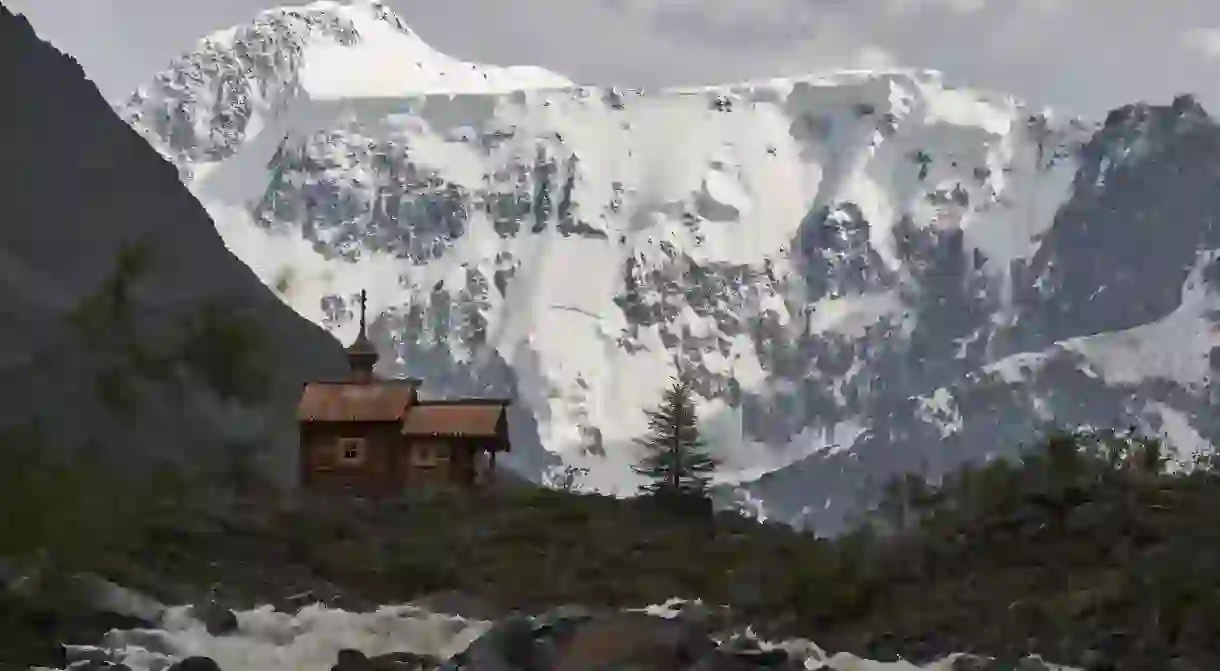The Most Breathtaking Mountains to Climb in Russia

Though Russia is often seen through the lens of Moscow and St. Petersburg, it has far more to offer beyond its cities. Natural landscapes here make Russia a hiker’s paradise, and one which is widely undiscovered. For all the wander-lusting hikers out there, here are the most breathtaking mountains to climb in Russia
Did you know – Culture Trip now does bookable, small-group trips? Pick from authentic, immersive Epic Trips, compact and action-packed Mini Trips and sparkling, expansive Sailing Trips.
Elbrus

A 5,642 metres (18,510 feet) above sea level, Elbrus is the highest peak in Russia. It is also a volcano, which makes climbing it all the more exciting. At the same time, Elbrus is also a very accessible peak. A cableway takes the adventurous hikers to the height of 3,700 metres (12,139 feet), where they can spend the night at a mountain guesthouse. The next day snow groomers take the group to a height of 4,100 metres (13,451 feet). From there, the hike takes about 13 hours. Professional alpine climbers climb Elbrus all year round, while amateurs usually choose the summer. If you’re healthy and reasonably fit, this is an excellent adventure to embark on. Remember that altitude requires acclimatisation period, so climbing one of the other peaks of Caucasus before Elbrus might be a good idea.
Vottvovaara
Not a very high mountain, yet an intriguing one. Held as sacred for the Sami people, the mountain is covered with mysterious rock formations, which look as if they were cut by people, but that scientists believe to be entirely natural in origin. The Sami people believed that the rocks were inhabited by spirits, and made the mountain their ritual site. The mountain remains an important place for modern neo-pagans. It is also where artists and free spirits search for inspiration. Climbing Vottovovaara is not very physically demanding, and is definitely a trip worth taking.
Klyuchevskaya Sopka
As the highest and the most active volcano in Eurasia, Klyuchevskaya Sopka has erupted five times since 2000. It is a part of Volcanos of Kamchatka UNESCO World Heritage Site, which means that climbing up Klyuchevskaya Sopka is a breathtaking, unique experience, and one of the absolute must-dos on any great Russian trip.
Fisht

Fisht is a mountain in Krasnodarski Kray, one of the southernmost parts of Russia, close to the border with Georgia. According to the local legends, the Greek god Prometheus, who was punished for giving people fire, was stretched across this exact mountain. According to the Greek myth, an eagle pecked out Prometheus’ liver every day until Hercules killed it with an arrow, thereby splitting the mountain into two: Fisht and Otshen. The hike up Fisht is not particularly demanding, but it is long: it starts with a 5-7 hour walk to the foot of the mountain. After the night spent in a mountain guesthouse, the actual hike can begin, with the starry nights of Caucasus making it an experience to remember.
Zub Drakona
Zub Drakona means ‘dragon’s tooth’ in Russian. It is a peak that doesn’t require a few day trip and staying the night in the mountains. Zub Drakona opens up to an abyss which can, nonetheless, be safely approached. It is an excellent destination for a day trip, and a place to take breathtaking selfies.
Belukha
Belukha is the highest peak in the Altai Mountains and, in fact, in the whole of Siberia. It is not the easiest mountain to climb, but less experienced climbers can join one of the many organised tours to take them there. If you’re not big on climbing difficult peaks, you can also experience a trip somewhat similar to the Lord of the Rings convention: ride on a horseback to the foot of the mountain, camp in pristine nature and devour the starry Siberian nights.
Manaraga
Manaraga is believed to be one of the most beautiful mountains in the Urals. It is located in the subarctic climate zone, where the weather can be tricky all year round. It is, therefore, not a mountain with which to start your hiking career. The tourist infrastructure is not very well-developed here yet, so the trip will most certainly involve camping in the wilderness. Pristine nature, breathtaking views and a challenging hike is all a hiker can ask for.













